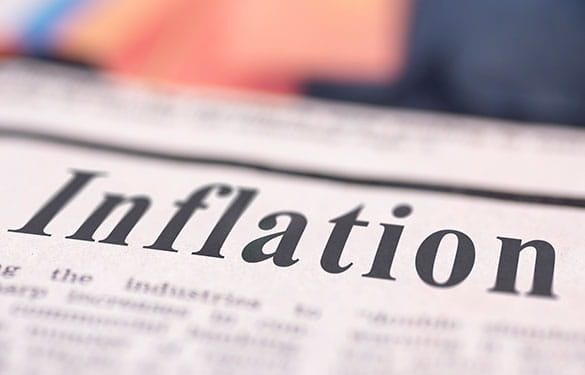The COVID-19 pandemic has drastically changed the way people live and work in a variety of ways. Many have shifted to a primarily remote workforce, engaged with healthcare providers digitally, found new hobbies, adopted new pets, and helped children learn and adjust to online education. There’s a new appreciation for small businesses, shopping locally, and supporting those in our community.
It has also drastically affected consumer spending and savings habits and patterns.
As the pandemic took its toll on the economy, vacations, weddings, and other gatherings were cancelled or postponed. People stayed home and didn’t go out to eat at restaurants or gather for other entertainment, and mass layoffs, worry and uncertainty led to widespread changes in financial behavior.
Here’s a list of the top 7 financial changes we’ve seen due to the pandemic, and 5 ways you can maintain positive financial habits in light of these changes.
TOP 7 CHANGES IN FINANCIAL BEHAVIOR DUE TO THE PANDEMIC
- We saved more. The personal savings rate, or ratio of personal saving to disposable personal income, jumped in June, 2020 to 19.3% and then again in March, 2021 to nearly 27%. This is up from an average of roughly 7% in 2019. Staying home and spending less gave consumers an opportunity to build an emergency fund and be better prepared for financial uncertainty.
- We ate at home. With restaurants closed to in-person dining, meal delivery services flourished. In fact, the top delivery companies (DoorDash, Grubhub, Postmates and Uber) made over $5.5 billion in revenue from April to September 2020, more than double what they’d made in the previous year.
People also spent more time cooking at home, learning to make new recipes and using contactless options like Kroger Clicklist to shop for groceries.
- We stopped going to the gym. We bought into online exercise programs and purchased home gym equipment. We spent more time hiking, running or walking outside, eliminating the need to pay for gym memberships.
- We worked from home. We spent less time getting ready and sitting in rush hour traffic. Buying fewer gallons of gas and decreased wear and tear on our cars were just a few of the perks of working from home. But for some, it also meant spending more money on home offices and making our homes a productive place to work.
- We focused on parenting at home. With many daycare centers and babysitters unavailable, families scrambled to make new childcare arrangements, such as watching kids while they worked from home. Some lost income while keeping one parent home during the day. Families and friends pitched in to help watch the kids. For many, childcare costs decreased.
- We shopped online. These days you can order almost everything online, and online shopping became faster and easier than ever during the pandemic. For some, this ease of access led to an increase in unnecessary spending.
- We paid down debt. Early studies have shown that many consumers used the cash the government was providing through unemployment and other pandemic funding to pay down credit cards and other debts. Many also saved when federal student loans were placed in a national forbearance for nearly two years. This gave consumers the opportunity to save, pay down mortgages, or fund other necessary purchases.
5 WAYS TO MAINTAIN POSITIVE FINANCIAL HABITS
There are some behavioral changes we are more inclined to keep than others. Here are a few ways we can focus on saving and responsible spending
- Commit to savings. Maintaining your savings is important for future financial security. Not only does it ensure you’re prepared in the event of an emergency or unexpected financial burden, but it can also give you peace of mind.
Set aside a certain percentage of your paycheck each month, or have it deposited directly into a savings account. Contribute to your 401(k) or retirement fund. If you have a side hustle, work extra hours, or sell some of your things for extra cash, put it all into a savings account you don’t touch. Consider investing. There are a number of options available, so choose one that feels right for you.
- Resist splurging. Now that stores, restaurants, and other entertainment options are re-opening, it can be easy to get caught up in spending. Work to control impulse purchases and spending and make a plan for large purchases.
- Analyze your personal habits. Take an objective look at your personal habits, both in general and when it comes to spending. For example, do you really need to renew your gym membership, or can you continue with your at-home routine? Can you cut back on food delivery? Are you shopping online to pass the time, but spending unnecessarily?
Knowing where you’re spending and making a plan for how you can cut back or spend smarter can help set you up for a more secure financial future.
- Budget. First, write down your average monthly income. Then, list all monthly expenses such as mortgage or rent, utilities, internet, cell phone, gas, groceries, etc. Be sure to average both necessary spending, like bills, and discretionary spending, like going out to eat or other entertainment.
Are you spending as much or more than you make? Where can you cut back in order to put more funds into savings? Are there options to save on necessary spending, like groceries, such as taking advantage of sales and coupons? Creating a budget that reflects your priorities and sticking to it is a great way to improve your spending and savings habits.
- Pay down debt. If you have an adequate emergency fund and are meeting your savings goals, using any extra funds to pay down debt is never a bad thing. Use debt repayment strategies such as the snowball effect to keep momentum while you pay off debt. The less debt you have, the more secure your finances can be.
If your budget has swelled and you can't afford your debt payments, contact a non-profit partner. They can discuss your loan repayment options and review your budget with you at no cost or obligation. And if you’re having issues with significant credit card debt at high interest rates, they can help you repay your principal at lower rates, saving you money every month.
- Commit to savings. Maintaining your savings is important for future financial security. Not only does it ensure you’re prepared in the event of an emergency or unexpected financial burden, but it can also give you peace of mind.


















